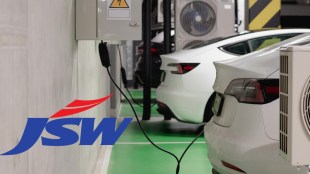By Partha Neog
In the fast-paced and dynamic realm of the automotive industry, the focus has traditionally been on groundbreaking innovations, cutting-edge technologies, and high-speed production. However, amidst the relentless pursuit of excellence, the white-collar professionals who constitute the backbone of this industry often face unique challenges that demand attention–challenges that extend beyond mechanical precision and engineering prowess.
To comprehend the landscape of the automotive industry, let’s begin with the numbers. According to a report by the Press Information Bureau, the Indian automotive industry employs over 19 million people directly and indirectly. While the automotive and manufacturing industry has significantly changed our lifestyle today, the fact is that in recent years, the automotive industry has witnessed a wave of transformative changes, including massive layoffs, intensified workloads, stringent production schedules, and escalating quality control concerns. These challenges have significantly impacted the mental health and well-being of white-collar professionals, who find themselves at the forefront of managing the growing pressure.
Furthermore, prolonged exposure to such stressors can lead to decreased job satisfaction and burnout. COVID-19 or post-pandemic not only increased psychological stress but also exacerbated the deterioration of mental health. Higher stress levels among white-collar automotive workers are not surprising and prevailed even before the pandemic. However, in the present scenario, their mental well-being is in a dire state.
Additionally, the mental stress faced by white-collar professionals can have a profound impact on their performance. The automotive industry thrives on precision, accuracy, and attention to detail, making the cognitive well-being of employees paramount. In an industry where split-second decisions and meticulous planning are imperative, compromised mental health can give rise to not only lapses in judgment but also heightened levels of anxiety and depression. This, in turn, contributes to decreased innovation and an overall decline in productivity. According to a study conducted by the World Health Organization(WHO), depression and anxiety cost the global economy US$ 1 trillion each year predominantly from reduced productivity.
Recognising the crucial need to address or tackle these challenges, it is important to emphasize the significant role of positive work culture in boosting employee satisfaction and improving productivity. A work culture that values inclusivity, open communication, and well-being creates an environment where white-collar professionals feel supported and driven to excel. According to a recent survey conducted by Gallup, 42% of the 13,085 respondents stated that a company’s attention to diversity and inclusivity are important factors for selecting a job. Fostering a more inclusive culture is a win-win scenario for automakers and their employees. Workers thrive in an environment where they feel welcomed and heard, contributing to longer-term employee retention for employers.
A proactive approach to employee engagement is a strategic tool for organizations to achieve maximum productivity. Establishing clear communication channels, providing opportunities for skill development, and prioritizing well-being and work-life balance are key elements in nurturing a culture that not only values its employees but actively invests in their professional and personal growth. In a recent study conducted by Stratford involving five Japanese automotive firms, findings underscored that elements, like extended working hours, hierarchical structures, and conventional management practices, impact employee engagement and the development of a positive culture. To uplift employee engagement levels and instill or promote a favorable/positive organizational culture, it is recommended that Japanese automotive companies direct their efforts towards investing in proactive and comprehensive employee development initiatives and well-being programs.
To sum it up, fostering a positive and inclusive work culture within the automotive industry is for navigating challenges and steering organisations toward enduring success. Prioritising the well-being of white-collar employees not only fulfills a moral obligation but also represents a strategic investment in the driving forces of innovation and precision. In the contemporary landscape, where the automotive sector grapples with dynamic challenges, acknowledging and mitigating mental stress and burnout among white-collar employees is imperative.
In essence, a supportive work culture leads to motivation, fostering creativity and efficiency. Through employee engagement programs and mental health initiatives, the automotive industry can unleash the full potential of its human capital, creating a synergy where engaged employees drive productivity. This holistic approach fortifies organizations and sets the stage for a future where innovation and human-centric values drive success.
The author is CEO and Co-Founder of Vantage Circle.
Disclaimer: The views and opinions expressed in this article are solely those of the original author. These views and opinions do not represent those of The Indian Express Group or its employees.




















